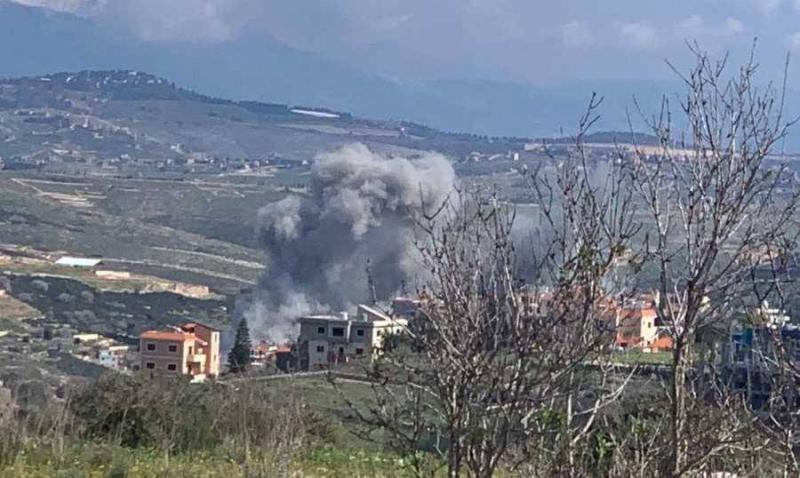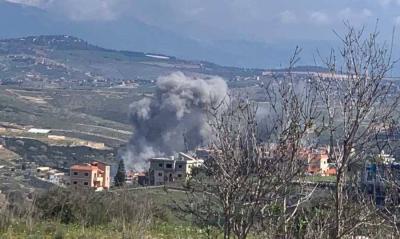A source in the Quds Force, affiliated with the Iranian Revolutionary Guard, revealed that Tehran requested explanations from Hezbollah following the targeting of an Israeli military base near Safed in northern Israel with new-generation Iranian missiles, conducted without coordination with Tehran. The source told "Al-Jarida" that the shelling, which occurred last Wednesday and angered Israel, involved Iranian missiles that Hezbollah was supposed to hold for a "suitable time," requiring coordinated use. This unexpected action raised eyebrows in Tehran, which sought clarification from Hezbollah, receiving a response that some leaders and members could no longer tolerate the Israeli escalation and decided to react independently.
Lebanese sources dismissed this justification as credible, especially since Hezbollah is known for its strict organizational discipline, and using sensitive missiles without its authorization indicates a significant and dangerous breach of command. The shelling that triggered a sudden and ongoing escalation along Lebanon's southern border occurred shortly after Iranian Foreign Minister Hossein Amir Abdollahian left Beirut, where he emphasized in public statements the need for de-escalation and avoiding a broad war or falling into Israeli provocations.
The source disclosed that Abdollahian confirmed in his meeting with Hezbollah's Secretary-General Hassan Nasrallah last Saturday that Iranian Supreme Leader Ali Khamenei still believes that the parties of the resistance axis, which includes Iran and its allies in Lebanon, Iraq, Yemen, and Syria, must continue to adhere to a policy of strategic patience and not divert attention from the situation in Gaza at any cost. In response, Nasrallah stated that he fully agrees with Khamenei's view that the resistance front should not enter the conflict according to the agenda of Israeli Prime Minister Benjamin Netanyahu, but things could spiral out of control at any moment due to party and public questions regarding why Hezbollah hasn't appropriately responded to Israeli assassinations involving its members and leaders.
According to the source, Nasrallah warned Abdollahian that the policy of strategic patience is starting to be interpreted by the Israelis as a sign of weakness or fear of confrontation, and the only effective policy for dealing with the Israelis is the policy of reciprocal response. The source added that Nasrallah asked Abdollahian to convey a message to Khamenei requesting orders for the Revolutionary Guard forces in Syria and Lebanon to permit Hezbollah to benefit from the advanced weapons they possess.
In light of this development, the source disclosed that the Iranian Foreign Ministry raised the issue of withdrawing some Iranian weapons from Syria, Iraq, and Lebanon, storing them in locations directly under Tehran's control. However, Quds Force Commander Ismail Qaani, who supports escalating confrontations with Israel and backing the Safed operation, rejected this by claiming that moving these weapons would lead to them being targeted by Americans or Israelis. Unlike previous operations, Hezbollah did not claim responsibility for the Safed attack, which raised questions and initiated speculation among observers, particularly because the party usually issues statements about its operations, sometimes detailing the types of missiles used, especially if they are heavy.




